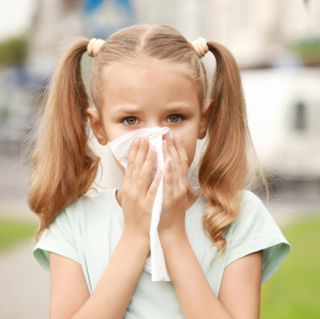Why we get allergy?
Nowadays, more and more people are allergic. While it was still relatively rare a few decades ago, allergies are now considered a common disease. The WHO estimates that one in two people will be affected in 2025, and this problem is becoming more common among children. But why are we going to be allergic and what to do if we notice symptoms in ourselves? That's what we followed.
What is an allergy?
Allergy is an excessive reaction of the immune system to substances that do not provoke any response from the body in others. In this case, the body perceives the allergen as dangerous, so it begins to defend itself, which can cause inflammation and physical symptoms. Allergens can be pollen from flowers, and animal hair, but many people are allergic to certain foods and medicines.
The exact process of developing an allergic disease is not known. Unpleasant symptoms most commonly occur in the lower and upper respiratory tract, eyes, skin, or intestinal tract.
Nasal congestion, tearing and itching of the throat are common, and many also develop conjunctivitis. In our country, one in four to five people is allergic to something, most of them suffer from ragweed that blooms from mid-July to October. The first pollens that cause allergies may appear as early as the end of February, and as the weather subsides, the concentration of pollen in the air increases.
At what age are allergies most common?
Allergies usually first appear in childhood, but there are some who only experience unpleasant symptoms in adulthood. Allergies that begin in childhood can usually outgrow, but the later a disease of this nature begins, the less chance it is of a full recovery.
Experts believe that the first thousand days in an infant's life also play an important role in allergies, as this is when our gut flora and immune system develop. If babies get the right nutrients in the first thousand days, we can reduce the chances of not only allergies but even diabetes.
Nutrition started at the age of four months can increase the chances of developing an allergy, but gradual familiarity with food should not be a problem. Moreover, experts say that gluten should be given early, as it also reduces the risk of developing allergies.
What can we do if we are allergic?
Although it is not yet possible to prevent allergies, we can reduce complaints. In addition to the use of special preparations such as eye drops and nasal sprays, experts also recommend that you only ventilate early in the morning or late at night during allergic periods. Nasal rinses with natural ingredients gently wash the nasal passages, remove allergens, and nasal sprays reduce symptoms and inflammation. In addition, it is worth choosing a preparation that nourishes and regenerates the nasal mucosa.
If you have a pollen allergy , stay outdoors as little as possible and throw the clothes you wear outside in the washing machine as soon as you get home. In the case of food allergies , avoid foods that cause allergies and look carefully for exactly what the foods we eat contain, as food allergies can cause a life-threatening reaction, called anaphylactic shock, in severe cases.
Symptoms depend on the type of allergen and the severity of the allergic reaction. Hay fever is one of the most common allergic symptoms, affecting about 10 to 30 percent of people worldwide. While hay fever causes nasal congestion, itchy eyes, and attacks the airways, food allergies occur in the gastrointestinal tract. In addition to bloating, diarrhea and abdominal pain, the most common symptoms associated with food allergies can sometimes include hives.
There are times when it is worth seeking medical help because of the excruciating symptoms of an allergy, as it can impair your quality of life in the long run. In case of anaphylactic shock, as mentioned above, a doctor should be consulted immediately, as it can even be fatal. It also hurts to be aware that without treatment, the symptoms of respiratory allergies will not go away.


Comments
Post a Comment